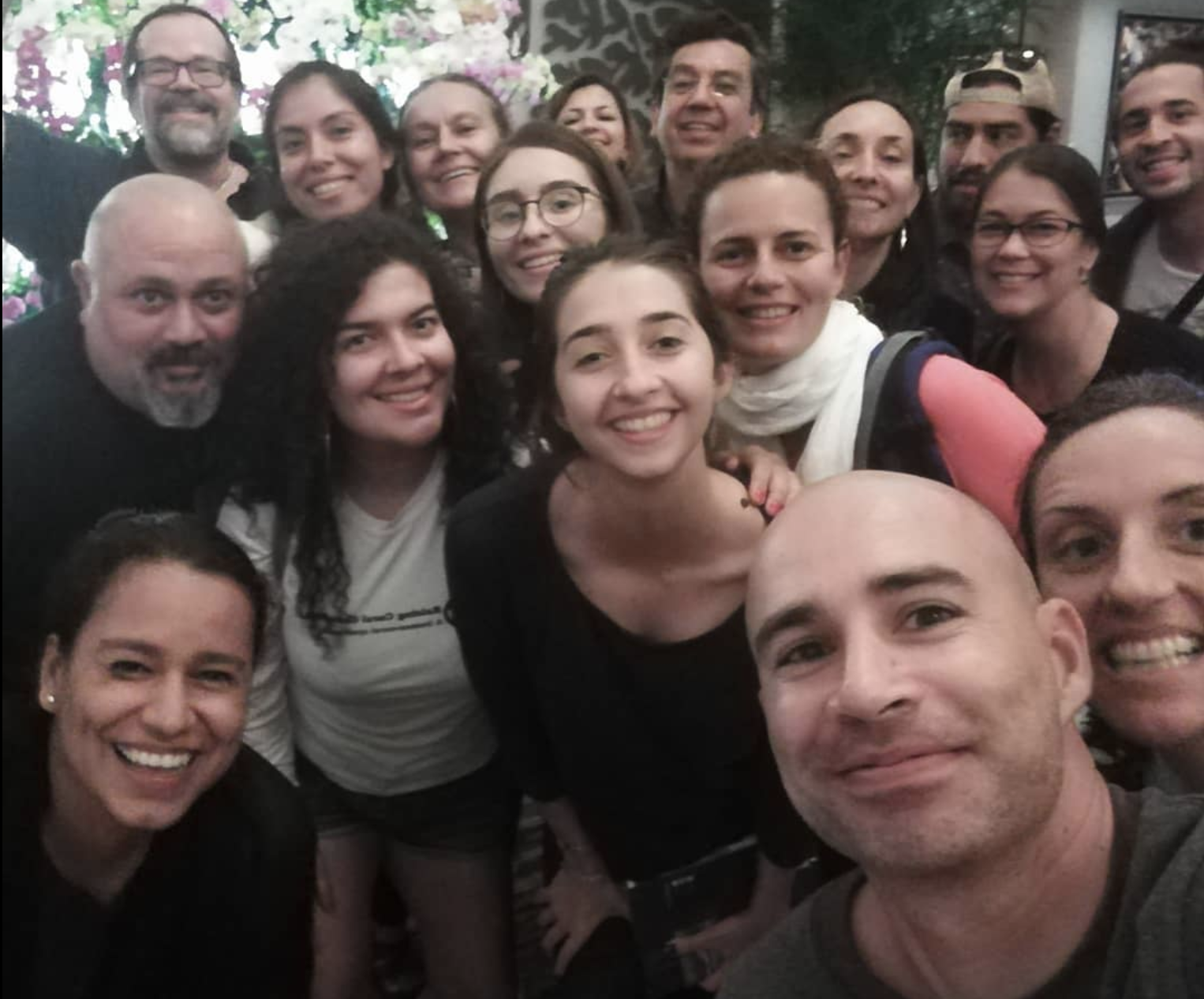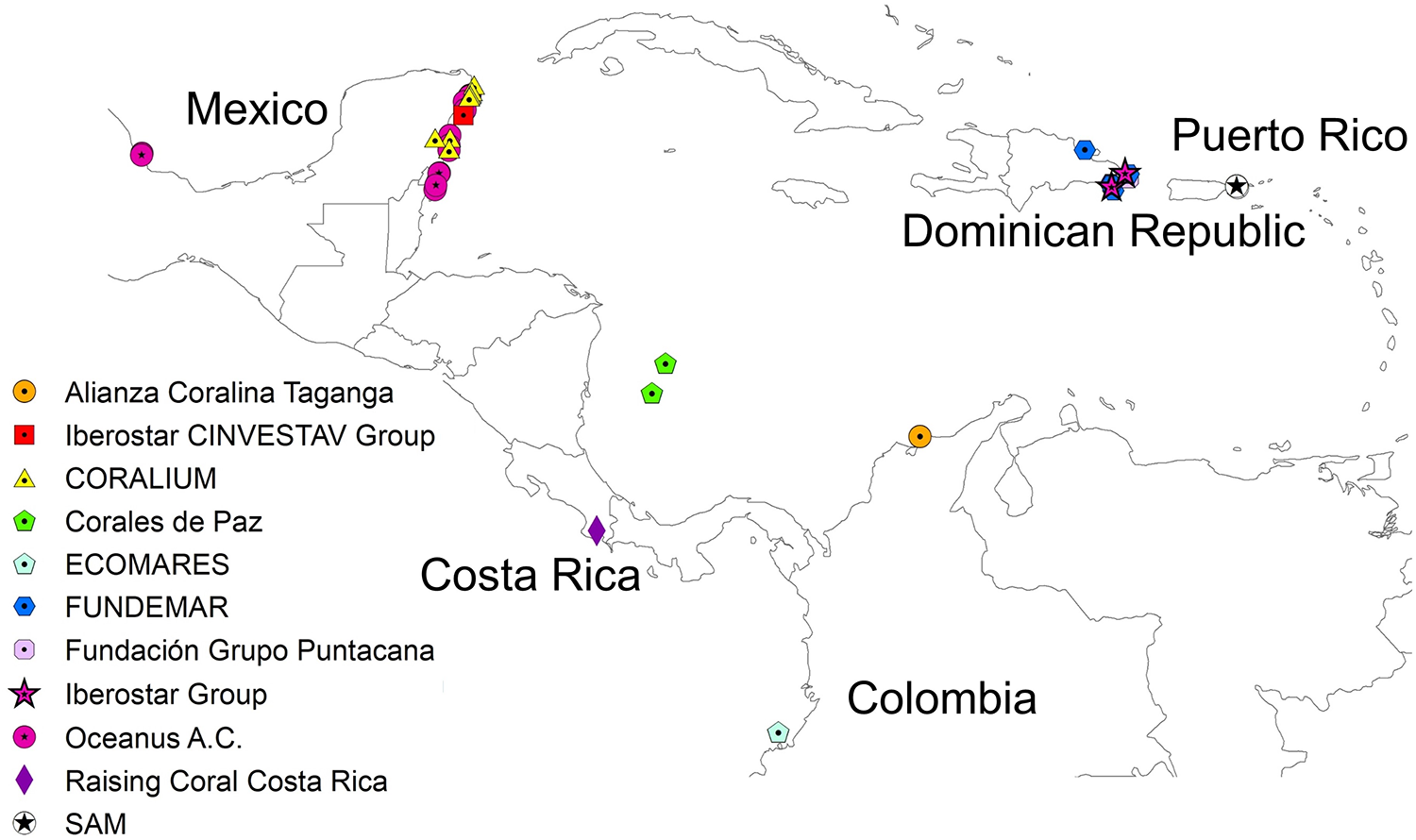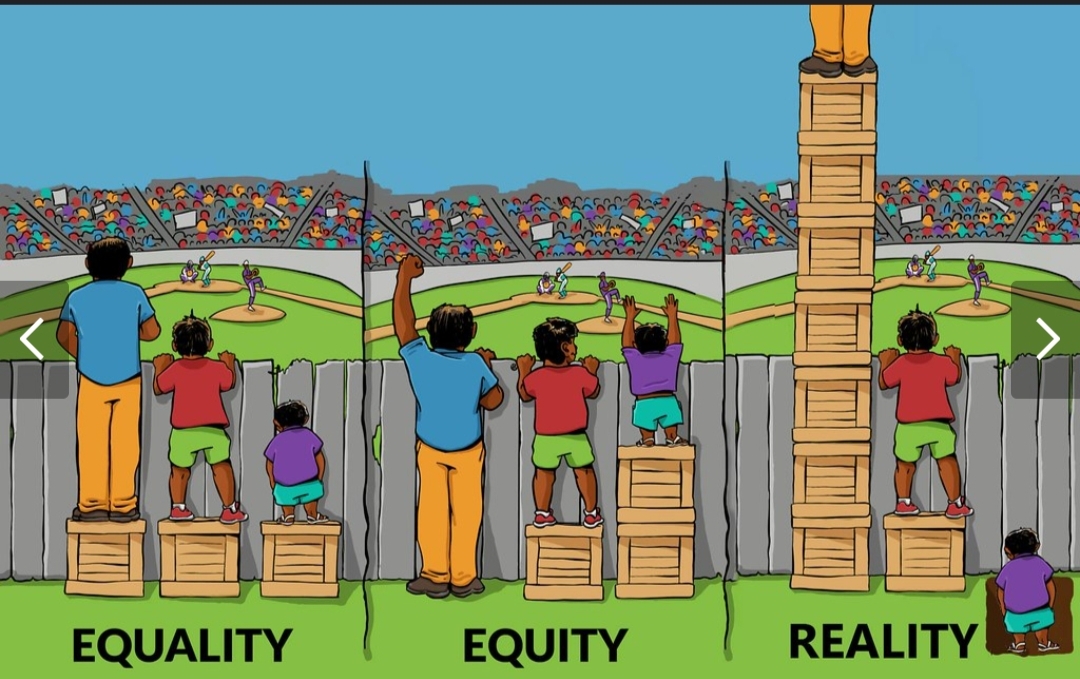A call on conferences for more equity and inclusion of diversity
This blog post is dedicated to all the people who care about equity and inclusion of diversity, especially with regards to collaborations with researchers and practitioners from low, lower-middle, and upper-middle income economy countries. Here, I tell my personal backstory about how the largest, oldest, and most respected coral reef research society, the International Coral Reef Society (ICRS), changed their operational model for running their International Coral Reef Symposium (ICRS22) to improve participation and access to delegates from developing countries by waiving the online registration fees. This change must have followed years of conversations and more recently, a public letter by a very unhappy symposium chair. Me.
And this is how everything began…
It would have probably been by chance that I found myself in a Spanish-speaking meeting at the Reef Future Conference in Florida back in 2018. Luckily, my Spanish was fairly good as I used to lived in Colombia for my PhD field work back in the day. At the meeting, I listened to 25 scientists and practitioners from at least 5 Latin American countries who were lamenting that nobody in the world has ever heard about their massive coral reef restoration projects. It seemed that non-English conservation papers are mostly ignored. Work by Amano et al. 2016 showed that at least 36% of all research in biodiversity conservation published in 2014 was not in English and we’ve been ignoring it. So in 2018, I decided to help out and started interviewing the Latin American practitioners to get their research out there. I sat together with each of them and asked them questions about cost, duration, spatial extent and feasibility of their projects in reaching their goals. Over the following 2 years, we wrote a multi-author scientific paper Bayraktarov et al.2020b reviewing the coral reef restoration efforts of Latin American Countries and Territories and we got it published in a pretty decent journal too.

Photo credit: Phanor Montoya Maya
I absolutely adore this picture that we took after our meeting at the Reef Futures conference in December 2018. It was the beginning of something bigger.
But I wanted to go further. I wanted to empower those people to have a voice at big international meetings. In 2020, supported by Edwin A. Hernández-Delgado, Samuel E. Suleimán-Ramos and Phanor Montoya Maya, I submitted a symposium to the largest coral reef conference, the ICRS20 - this year in Bremen, Germany, to showcase the coral reef restoration efforts in the Caribbean and Eastern Tropical Pacific. The symposium attracted about 17 presenters from lower-middle-income countries such as Puerto Rico, Costa Rica, Mexico, Bonaire, Curacao, Dominican Republic and Colombia. However, ICRS20 was postponed to ICRS21 due to COVID-19 and was held entirely online. Sadly, none of the accepted delegates could afford the 350 Euro participation fee for an online conference - so our symposium changed completely.

Source: Bayraktarov et al.2020
In 2022, the ICRS was meant to be repeated as a hybrid event hosted again in Germany. Some of the reasoning behind running two ICRS in two consecutive years instead of every 4 years was to cover the costs which incurred during the cancellation in 2020. So the online participation fees jumped from 350 to 395 Euro (the in person fees are 830 Euro). Put into perspective, we need to recognise that 395 Euro represent 70-80% of the average monthly income in the countries where the delegates in my symposium came from. The ICRS had resubmitted all accepted symposia, presentations and posters that were accepted in the virtual ICRS21. But I doubted that anyone from a lower-income economy country would be ever able to afford these high registration costs.
I felt very strongly that there was a huge need for an immediate cultural change for inclusion of diversity and towards more equity. Both my co-chair, Phanor Montoya Maya from Corales de Paz in Colombia and I were prepared to step down as symposium chairs if ICRS didn’t waive the online participation fees for delegates from lower-income economy countries. At the time of formulating our concerns, I had no idea whether our call for action would lead to any change but at least I was full of hope (and equally terrified about the bridges that I might burn). My hope was that it would at least stimulate a discourse for a potential change to happen in the near future. And it did. And it was much faster then I ever dared to dream.
The difference between Equality vs Equity
The United Nations’ Sustainable Development Goal (SDG) 10 is to “Reduce inequality within and among countries” – and designed in particular (Target 10.6) to “Ensure enhanced representation and voice for developing countries in decision-making in global international economic and financial institutions in order to deliver more effective, credible, accountable and legitimate institutions” and (10a) to “Implement the principle of special and differential treatment for developing countries, in particular least developed countries, in accordance with World Trade Organization agreements”.
Lately, I’ve been thinking a lot about equality vs equity and discovered that there’s a huge difference in meaning:
Equality is giving all people the same resources or opportunities, that is - all people no matter their country of origin can register for the ICRS and have to pay the same registration fee.
Equity recognises that people are different and that some might have difficult circumstances. So equity allocates the exact resources needed to reach an equal outcome, that is - people from lower-income economy countries can apply to get their online participation fees waived so that they can partake in the scientific discourse with everyone else.

Source: Flickr (https://www.flickr.com/photos/136820825@N05/26798396924)
So what we really want is more equity. We should aspire to build a society where everyone can be given the exact resources needed to reach an equal outcome, despite of their circumstances. But I can see how this can be a fine line between what is appropriate and what could be perceived as too much.
Conversations with the ICRS Organiser and the Society President
I asked around in the network of my Latin American colleagues and many of them were quite upset about the high online registration costs for the ICRS. Many were seeing enormous benefits from online conferncing as that would save them the need and cost to travel while still being able to contribute to a scientific meeting. There, I found the support I needed. Phanor helped me write a public letter expressing our concerns. The open letter was supported by 10 wonderful colleagues from Latin America who coulnd’t afford the online cost for participating at the ICRS.
We shared our Open Letter both with the ICRS Organising Committee, led by Christian Wild, and the President of the International Coral Reef Society, Andrea Grottoli. An initial pushback turned into a bit of a back and forth and eventually into a fruitful conversation. At that time, it needs ot be acknowledged that the Organisers of the Bremen ICRS were placed in a near impossible situation when the COVID-19 pandemic irrupted in early 2020. It is appreciated that a significant drain in conference funding resulted both because costs could not necessarily be reclaimed when the original conference was postponed, and because some of the original sponsors had inevitably withdrawn their sponsorship. So they had to evaluate. In the meantime, I took the Open Letter public and posted it on Twitter and circulated it through various mailing lists including the Coral List administered by the National Oceanic and Atmospheric Administration and the list of the Centre for Biodiversity and Conservation Science at the University of Queensland. I was overwhelmed by the support from all over the world that the letter received.
Two weeks later, the ICRS (Society) agreed to contribute $50,000 in new sponsorship to the 15th ICRS. In collaboration with financial commitments from the 15th ICRS 2022 Organisers, this new sponsorship would be able to offer a free registration for all ICRS 2022 ONLINE presenters currently employed and residing in low, lower-middle, and upper-middle income economy countries (as defined by the World Bank). I couldn’t believe my eyes when I saw the notification by the ICRS!
And what happened next
My symposium co-chairs, a few Latin American colleagues and even 2 researchers who got back to me after sending the Open Letter through the various networks and channels all agreed to write a scientific publication telling the story and recommending other international societies and conferences to follow ICRS’ lead and start to proactively promote diversity, equity and inclusiveness. We collaborated with the editor of ICRS’ news journal, ‘Reef Encounter’, Rupert Ormond and got his insights as a long-term member of the ICRS (Society). So we absorbed his enormous wisdom to write the full story, just on time before the ICRS in Bremen 3-8 of July 2022. Collaborating with Rupert was probably the best experience I’ve ever had in writing an editorial - given all the help we’ve received from him!
Our recommendations boil down to 4 points that professional societies and conferences could employ to increase diversity, equity and inclusion:
1) Conference organising bodies (e.g. scientific, professional, government, industry associations/ societies/ unions/ institutes) need to change their business models by adding an Equity Clause that is aligned with UN’s Sustainable Development Goal (SDG) 10 - to “Reduce inequality within and among countries”. The Equity Clause would consider ‘waiving registration fees for online participation’ and ‘providing equity discount for physical meetings’ to delegates from lower-income economy countries.
2) Conferences could somewhat reduce cost by looking for free or low-cost platforms or apps for conferencing, which are generalised rather than custom-made. For instance, although not free of charge, Zoom or Microsoft Teams are available through most organisations in charge of conference organising and can be used for webinars and workshops. Generic, out of the box, low-cost conference apps such as Whova can keep the costs down, e.g., as used at the International Marine Conservation Congress in 2021.
3) Conferences able to waive online registration fees and/or provide discounts for participants who cannot afford full registration fees have usually sought several corporate sponsors who have often also provided travel grants and reduced registration cost for on-site delegates.
4) Conferences should also investigate the introduction of a tiered approach where participants able to afford their registration and conference attendance pay somewhat higher registration fees than those less able to pay. The option to “Sponsor a colleague who has challenges attending” presented as a tick-box next to the carbon offset, could also appeal to some delegates.
I firmly believe that this is a huge step towards diversity, equity and inclusion. Avoiding groupthink and fostering an inclusion of a wide range of perspectives as well as local and/or traditional knowledge will become paramount for finding innovative solutions to the global coral reef crisis and other ‘wicked’ problems of our society.
And back to you
Whenever I am consumed by doubt about whether I should go for a scary action to follow my personal values, I think of quotes like this one:
“Every great dream begins with a dreamer. Always remember, you have within you the strength, the patience, and the passion to reach for the stars to change the world.” – Harriet Tubman
I thought, I’d share it with you as I know that many of us working in conservation are constantly fighting to change the status quo. This is scary. And that’s ok. You got this!